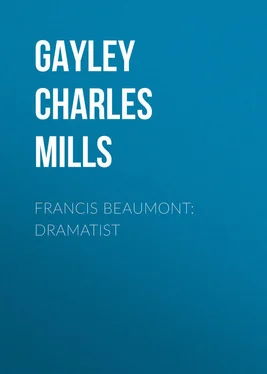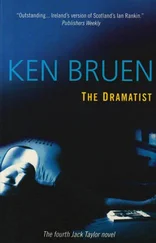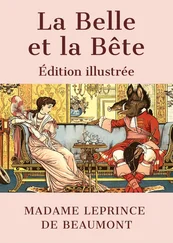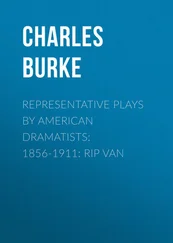Charles Gayley - Francis Beaumont - Dramatist
Здесь есть возможность читать онлайн «Charles Gayley - Francis Beaumont - Dramatist» — ознакомительный отрывок электронной книги совершенно бесплатно, а после прочтения отрывка купить полную версию. В некоторых случаях можно слушать аудио, скачать через торрент в формате fb2 и присутствует краткое содержание. Жанр: cinema_theatre, foreign_antique, foreign_prose, Биографии и Мемуары, на английском языке. Описание произведения, (предисловие) а так же отзывы посетителей доступны на портале библиотеки ЛибКат.
- Название:Francis Beaumont: Dramatist
- Автор:
- Жанр:
- Год:неизвестен
- ISBN:нет данных
- Рейтинг книги:5 / 5. Голосов: 1
-
Избранное:Добавить в избранное
- Отзывы:
-
Ваша оценка:
- 100
- 1
- 2
- 3
- 4
- 5
Francis Beaumont: Dramatist: краткое содержание, описание и аннотация
Предлагаем к чтению аннотацию, описание, краткое содержание или предисловие (зависит от того, что написал сам автор книги «Francis Beaumont: Dramatist»). Если вы не нашли необходимую информацию о книге — напишите в комментариях, мы постараемся отыскать её.
Francis Beaumont: Dramatist — читать онлайн ознакомительный отрывок
Ниже представлен текст книги, разбитый по страницам. Система сохранения места последней прочитанной страницы, позволяет с удобством читать онлайн бесплатно книгу «Francis Beaumont: Dramatist», без необходимости каждый раз заново искать на чём Вы остановились. Поставьте закладку, и сможете в любой момент перейти на страницу, на которой закончили чтение.
Интервал:
Закладка:
Or, – and how could any young Oxonian fail of it? – they started from Broadgates, down the High, crossed Magdalen Bridge, where the boats were lazily oaring below them, and set out for the climb to Rose Hill; then down by sleepy ways to Littlemore, and to Sandford; then up the two long sharp ascents to Nuneham, – where now, in the fine old manor house, hangs Frank's own portrait in oils, – one of the two contemporary likenesses of him that exist to-day.
CHAPTER III
AT THE INNS OF COURT AND CHANCERY; THE POEMS ASSIGNED TO THESE EARLIER YEARS
The career of the Beaumonts at the University was shortened by the death of their father, some fourteen months after their admission. Henry had been entered of the Inner Temple, November 27, 1597, at his father's request. Some say with John, but I do not find the latter in the Records. Francis may have remained at Oxford until 1600. On November 3 of that year, he, also, was admitted a member of the Inner Temple, his two brothers acting as sponsors for him. We notice from the admission-book that he was matriculated specialiter , gratis , comitive , – because his father had been a Bencher, – was excused from most of the ordinary duties and charges, and was permitted to take his meals and to lodge outside the Inn of Court itself. I gather that, like other young students at the time, he lodged and pursued his studies in one of the lesser Inns, called Inns of Chancery, attached to the Inner Temple and under its supervision: Clifford's Inn across Fleet Street; or, across the Strand, Lyon's Inn, – or, let us hope, by preference, Clement's Inn; where had lain Jack Falstaff in the days when he was "page to Thomas Mowbray, Duke of Norfolk," and was seen by lusty Shallow to "break Skogan's head at the court-gate when 'a was a crack not thus high;" where had boozed Shallow himself and his four friends – "not four such swinge-bucklers in all the Inns of Court again"; and where, no doubt, they were talking in Beaumont's day "of mad Shallow yet."
In 1600, the Inns of Chancery lodged about a hundred students each, and served as preparatory schools for the Inns of Court. At one of these lesser Inns 15 15 Inns of Court and Chancery (Lond., 1912), p. 45; W. R. Douthwaite, Gray's Inn, its History and Associations (Lond., 1886), pp. 36, 78, 253. For the Beaumonts, and what follows, see, also, Inderwick, Inner Temple Records (Lond. 1896), I, 421; II, 435; Introductions, and subjects as indexed.
Beaumont would acquire some elementary knowledge of civil procedure by copying writs of the Clerks of Chancery, would listen to a reader sent over by the Inner Temple to lecture, and would be "bolted," or sifted, in the elements of law by the "inner" or junior barristers; and he would attend "moots" over which senior or "utter" barristers presided. At the end of about two years or earlier, if he proved a promising scholar, he would be transferred to the Inn of Court, itself. We may assume that about 1602, Beaumont would be sitting in Clerks' Commons in the Hall of the Inner Temple. Bread and beer for breakfast, – provided on only four days of the week. At 12 o'clock he would be summoned to dinner by the blowing of a horn, – "thou horne of hunger that cal'st the inns a court to their manger." For his mess of meat, – in Lent, fish, – on other occasions, loins of mutton, or beef, – he would make himself a trencher of bread. At 6 or 7 o'clock would come supper, – bread and beer again. After dinner, and again after supper, he would enjoy bolts and exercises conducted by the utter barristers, day in and day out through nearly the whole year. As he advanced in proficiency he would appear as a "moot-man" in the arguments presented before the Benchers, or governing fellows, seated as judges. And perhaps he resigned himself, meanwhile, to the proper wear within the Inn, which was cap and gown, "but the fashion was to wear hats, cloaks or coats, swords, rapiers, boots and spurs, large ruffs and long hair. Even Benchers were found to sit in Term Time with hats on." 16 16 Inns of Court, etc. , p. 163.
Whether Beaumont gave promise or not we are ignorant. The routine of the Inn was impeccable; but students and benchers were not. There were not infrequently other exercises than "moots" after supper: cards and stage-plays, revels and sometimes riots. This much we know, that before young Frank could have fulfilled his seven or more years as student and "moot-man," he was already in the rank of poets and dramatists. But, that by no means precludes his continuance for several years, perhaps till 1608, in the juridical university, or his intimate association with and residence in the stately old quadrangles of what would be his college, – the Inner Temple. And for a young man of his temperament the atmosphere was as poetic as juridical. The young man's fancy was fired by the poetry and the drama that for centuries had enlivened the graver pursuits of the Gothic halls that rose between Fleet Street and the Thames, Whitefriars and Paget Place, – "the noblest nurseries of humanity and liberty in the kingdom," as Ben Jonson calls them in his dedication 17 17 The Dedication first appears in the folio of 1616.
to the Inns of Court of Every Man out of his Humour , first published in the year when Beaumont entered.
According to Aubrey, while the garden-wall of Lincoln's Inn, close by, was building, a Bencher of that society "walking thro' and hearing" a young bricklayer "repeat some Greek verses out of Homer, discoursed with him, and finding him to have a witt extraordinary gave him some exhibition to maintaine him at Trinity College, Cambridge." That young bricklayer was, later, Beaumont's friend and master, Ben Jonson. Lincoln's Inn had long been a nursing mother to dramatic effort. At the beginning of Queen Elizabeth's reign it was one of its members, Richard Edwardes, who, as Master of the Chapel Children, produced the "tragicall comedie" Damon and Pythias , and the tragedy of Palamon and Arcite , to the great edification of the Queen, and the permanent improvement of the Senecan style of drama by the fusion of the ideal and the commonplace, of the romantic, the serious, and the humorous in an appeal to popular interest. "He was highly valued," this Edwardes, "by those that knew him," says Anthony Wood, "especially his associates in Lincoln's Inn." And it was in the Middle Temple, just fourteen months after Beaumont joined the Inns of Court, that Manningham, one of the barristers, witnessed the performance for the Reader's Feast on Candlemas Day of Shakespeare's Twelfth Night . If Beaumont of the Inner Temple, within a stone's throw, did not hear more than the applause, he was not our Frank Beaumont. We may be sure that he had sauntered through the Temple Gardens many an afternoon, and knew the spot immortalized by Marlowe and that same Shakespeare, as the scene of the quarrel between Plantagenet and Somerset when the white and red roses were plucked, and that he would hear Shakespeare when he could.
But much as the Middle Temple and Lincoln's favoured the drama and costly entertainments on the major feast-days, they were outdone in Christmas revels and masques and plays by the closely affiliated societies of Gray's Inn and the Inner Temple. Between these Houses, says Mr. Douthwaite, the historian of the former, "there appears anciently to have existed a kindly union, which is shown by the fact that on the great gate of the gardens of the Inner Temple may be seen to this day [1886] the 'griffin' of Gray's Inn, whilst over the great gateway in Gray's Inn Square is carved in bold relief the 'wingèd horse' of the Inner Temple." The two societies had long a custom of combining for the production of theatrical shows; and as we shall see, they combined some thirteen years after Beaumont entered the Inner Temple in the production at Court of one of the most glorious and expensive masques ever presented in London, Beaumont's own masque for the wedding of the Elector Palatine and the Princess Elizabeth. They were influential as patrons of the early drama, and as producers of amateur dramatists. For centuries Gray's Inn had permitted "revels" after six o'clock supper of bread and beer; and when Beaumont was of the Inner Temple close by, there was a Grand Week at Gray's in every term. "They had revels and masques some of which," as a member of that society has recently said, "have never been forgotten, and I think cannot be forgotten while English history lasts." 18 18 H. E. Duke, K. C., M. P., Gray's Inn in Six Lectures on the Inns of Court and of Chancery , 1912.
From a very early date, perhaps not long after the society was established in Edward the Third's reign in the old manor of Portpool, "they were addicted at the Christmas season to a great outburst of revelry of every kind. The revelings began at All Hallows; at Christmas a Prince of Portpoole was appointed; who was also Lord of Misrule, and he kept things gaily alive through Christmas and until toward the end of January." These and other disguises, masques, and mummeries, are lineal descendants of the mummings of the Ancient Order of the Coif, such as regaled King Richard II at Christmas 1389; and, amalgamated with St. George plays and other folk-shows and even with sword-dances, they influenced the course of rural drama throughout the realm. It may be a bow drawn at a venture but I cannot withhold the suspicion that the Lord of Pool of the Revesby Sword-Play and of other popular compositions derives from the historic Prince of Misrule of the Gray's Inn Christmas revels. It was George Gascoigne of Gray's Inn who by a translation from Ariosto introduced the Renaissance treatment of the Greek New Comedy and the Latin Comedy into England with his Supposes in 1566, and in the same year, with Francis Kinwelmersh, produced at Gray's Inn an English rendering of Ludovico Dolce's Giocasta , a tragedy descended from Euripides' Phoenissae by way of a Latin version. "Altogether," remarks Professor Cunliffe, 19 19 Early English Classical Tragedies , Introduction, p. lxxxvi.
"the play must have provided a gorgeous and exciting spectacle, and have produced an impression not unworthy of Gray's Inn, 'an House', the Queen said on another occasion, 'she was much beholden unto, for that it did always study for some sports to present unto her.'" To this house and to Gascoigne, Shakespeare, too, was beholden, for from the Supposes proceeds more or less directly the minor plot of The Taming of the Shrew . In 1588, Gray's Inn figures prominently again in the career of the pre-Shakespearian drama, with the production by one of its gentlemen, Thomas Hughes, of a tragedy of English legend and Senecan type, The Misfortunes of Arthur , played by the society before the Queen at Greenwich. And, in 1594, Gray's Inn connects itself with the Shakespearian drama directly by witnessing in the great hall in the Christmas season a play called A Comedy of Errors , "like to Plautus his Menaechmus ."
Интервал:
Закладка:
Похожие книги на «Francis Beaumont: Dramatist»
Представляем Вашему вниманию похожие книги на «Francis Beaumont: Dramatist» списком для выбора. Мы отобрали схожую по названию и смыслу литературу в надежде предоставить читателям больше вариантов отыскать новые, интересные, ещё непрочитанные произведения.
Обсуждение, отзывы о книге «Francis Beaumont: Dramatist» и просто собственные мнения читателей. Оставьте ваши комментарии, напишите, что Вы думаете о произведении, его смысле или главных героях. Укажите что конкретно понравилось, а что нет, и почему Вы так считаете.












